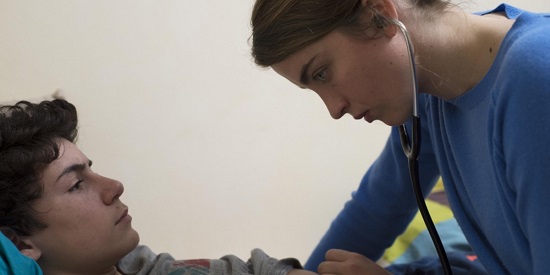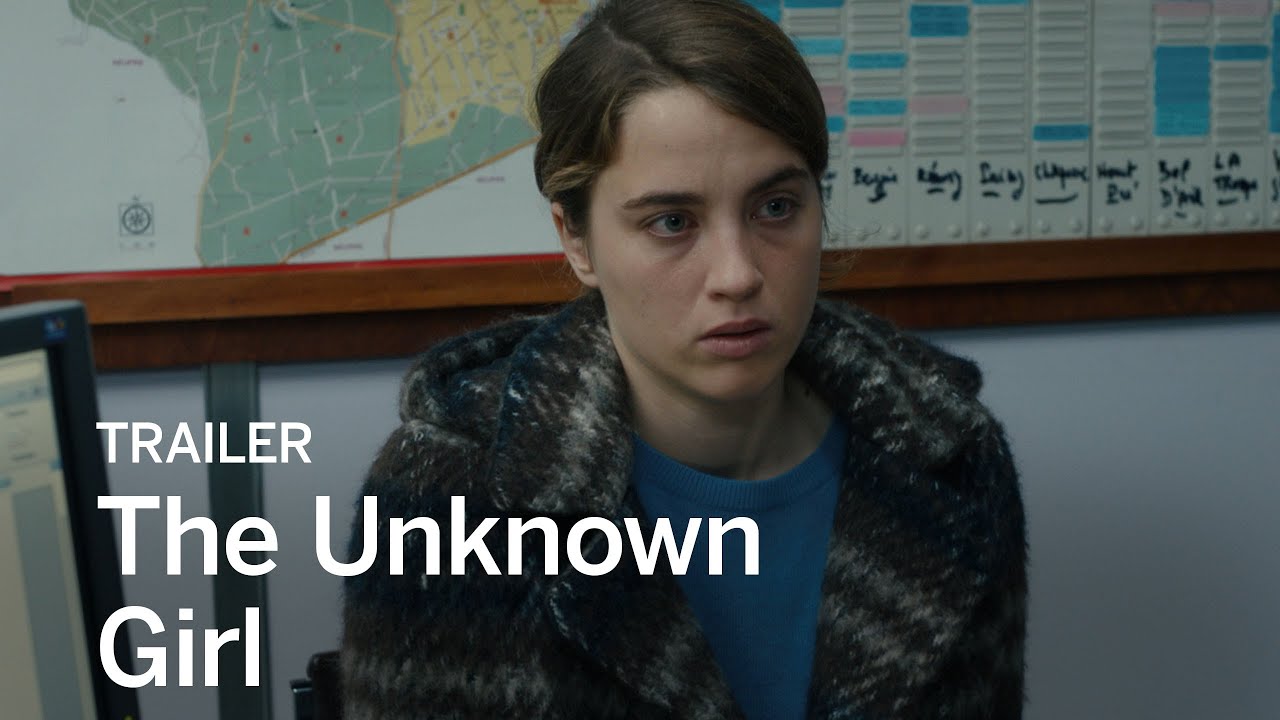Two time Palme d’Or winners the Dardenne brothers are master craftsmen, reliably and skilfully plying their chosen trade. The Walloon auteurs have been remarkably dependable since their 1996 breakthrough The Promise. They make exactly one type of film – austere social realist cinema constructed with deceptive precision, about those living in the cracks of modern Belgium, faced with intense moral dilemmas – and they do it exceptionally well.
Their latest film The Unknown Girl is of a piece with the rest of their filmography, but can’t help but pale when compared to the brothers’ previous masterpieces. By the Dardenne’s lofty standards this is a minor misfire, by anyone else’s it’s solid.
Adèle Haenel stars as Jenny, a young GP who one evening turns away a young immigrant woman buzzing at the door of her practice after hours. The woman turns up dead the next day, and Jenny is racked by guilt. No one identifies the woman, and the police are not overly concerned. Jenny begins to obsessively investigate. She aims to discover the woman’s name, in order to give her a proper burial.
Jenny doggedly searches for the truth, while going about her routine daily work as a GP. The Dardenne’s exhibit their frequent interest in the meaning that work holds, and how the routine and repetition of work can subtly shift in meaning. Simply watching a competent doctor go about her work is compelling in itself.
The Dardenne’s films are meticulously authentic – always set and filmed in the post-industrial misery of the Liège region of Wallonia – but there’s also a heightened improbability and intensity to many of the scenarios in their films. Approached from a different angle they could be stylised neo-noirs, but instead they’re moral parables presented as documentary realism, that crucially feel completely authentic.
The Unknown Girl is no more unlikely in its plotting than previous films The Son, or Two Days One Night, but in execution it feels far clunkier. Jenny’s guilt and her quest for the truth make logical sense, but it feels more abstract, and more distant, than the gut wrenching and visceral struggles of previous Dardenne protagonists.
Dardenne protagonists are usually living on the very edge of society. There’s a brutal vividness to films like Rosetta, and The Son that isn’t matched here. Those films deal with life and death with appropriate intensity, and while The Unknown Girl is about an apparent murder it never feels as tangible.
Perhaps the issue is that nothing ever really feels at stake for Jenny. She’s a qualified and competent doctor, and while not living a life of luxury, is hardly on the breadline. There are a few more dramatic moments, but on the whole the only thing she seems to really risk is becoming a nuisance to the individuals she questions.
This is a film about collective guilt and responsibility, and how as a society we are more than willing to let the ‘wrong’ sort of people fall by the wayside, not necessarily out of maliciousness, but because of simple ignorance and indifference. The plight of vulnerable immigrants is an abstract one, it doesn’t feel real, so we don’t take it seriously.
The Unknown Girl doesn’t manage to make the plight of the forgotten any more tangible; instead it schematically tells us what most of us already know on at least some level. The titular unknown girl never becomes a real person, just a symbolic figure to hang some commentary on. This is a far cry from the intense, almost religious, moral revelations of the Dardennes brother’s finest work. Their films always end on a jarring cut to black. When The Son finishes you’re floored. When The Unknown Girl ends it just feels all too predictable.
The film still works as a low key take on the investigative procedural, and there are enough effective moments on the whole, but it falls short of the brother’s best work. It’s an exceedingly high bar to match, and they’ve been such a consistent creative force for so long that a slight dip in quality is all the more jarring.
The Unknown Girl is in select cinemas now



